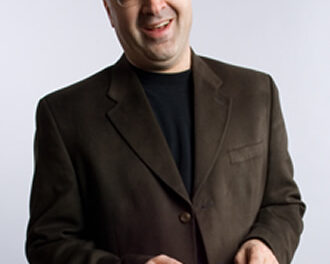George Crumb 70th Birthday Album: Star-Child, Mundus Canis, Three Early Songs
Susan Narucki, soprano, Joseph Alessi, trombone, Crumb and Paul Cesarczyk, bell ringers, Warsaw Boys’ Choir, Warsaw Philharmonic Orchestra and Choir, Thomas Conlin, conductor; David Starobin, guitar, Crumb, percussion; Ann Crumb, soprano, Crumb, piano; Bridge 9095 © 1999 (54:15). $16.98.
Mario Davidovsky: Flashbacks, Festino, Romancero, Quartetto No. 2, Synchronisms No. 10, String Trio
NY New Music Ensemble; Speculum Musicae; Susan Narucki, soprano, Speculum Musicae; Peggy Pearson, oboe, Bayla Keyes, violin, Mary Ruth Ray, viola, Rhonda Rider violoncello; David Starobin, guitar; Speculum Musicae. Bridge 9097 © 2000 (66:34). $16.98.
Mario Davidovsky: Shulamit’s Dream, Scenes from Shir ha-Shirim, & Biblical Songs
Susan Narucki, soprano, Riverside Symphony, George Rothman, conductor; Narucki, soprano, Mark Bleeke, tenor I, Mukind Marathe, tenor II, Wilbur Pauley, bass, Parnassus, Anthony Korf, conductor; Narucki, soprano, Parnassus, Korf, conductor. Bridge 9112 © 2002, (56:35). $16.98.
Several common threads bind these three CDs together: 1) the presence on all of soprano Susan Narucki, devoted and indefatigable promoter of vocal music by living composers; 2) their appearance on the Bridge label, an equally tireless and devoted supporter of this music; and 3) the fact that all are, by their very nature, significant recordings in a historical sense.
The Crumb CD marks a milestone in the life of the composer and, insofar as possible with only three pieces on a single CD, presents a sampling of his work over the years. The first of the Davidovsky CDs is likewise a retrospective sampling, including a work form his six-year foray/exile into electroacoustic music in the 60s, and is perhaps the most varied of the three since it includes six pieces. The second Davidovsky CD is his pean to the Book of the Bible that began enthralling him in his youth, the Song of Songs. It incorporates the fruits of his electroacoustic foray as well as echoes of sacred musical traditions, both Jewish and Christian, from ancient and medieval times that have also strongly influenced his style in a single, unified disk. Although interesting and effective, it ends up sounding, for this listener, much more like modern ceremonial than recital hall music.
Performances of all the works are fine. The CDs are, in one sense, compilations, for the works were recorded at various places and times, but the sound is nonetheless excellent in all cases, the patchwork all but unnoticeable. It is inevitable, in CDs such as these, that some works and interpretations will please each listener more than others. I particularly liked Crumb’s “Three Early Songs” sung by his daughter. They were a marked contrast with Narucki’s rendition of Davidovsky’s Romancero, where the music did not seem to flow from the words nearly as naturally although it was an equally outstanding performance. In some cases, I could not help but wonder how often the average classical music aficionado would return for another hearing (I listened to each one twice), if indeed s/he would venture to purchase the CD. While impressive works and performances, and by no means dissonant or grating music, they simply do not offer the abiding melodies and appeal that cause the war-horses to reappear constantly in the concert halls and on CDs.
All the booklets have extensive, extremely informative, and very readable essays about the composers and the works and include the texts of all the songs and English translations, except for those in Hebrew (Shir ha-Shirim) where only translations are provided. They are models worthy of emulation in content. They forego wide margins, however, in the interest of a larger typeface, which occasionally puts the text perilously close to the graphic or the edge of the page, although it makes for far easier reading than the run-of-the-mill booklet.
I can say without reservation, personal tastes notwithstanding, that these CDs all richly deserve a place in the library of any serious collector of 20th century music.
NOTE: Narucki, who has visited North Carolina frequently, returns to the Tar Heel State for a concert with the Ciompi Quartet on Valentine’s Day 2004.











